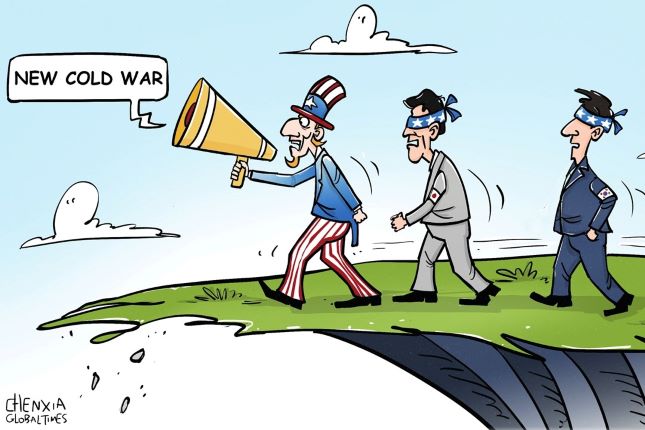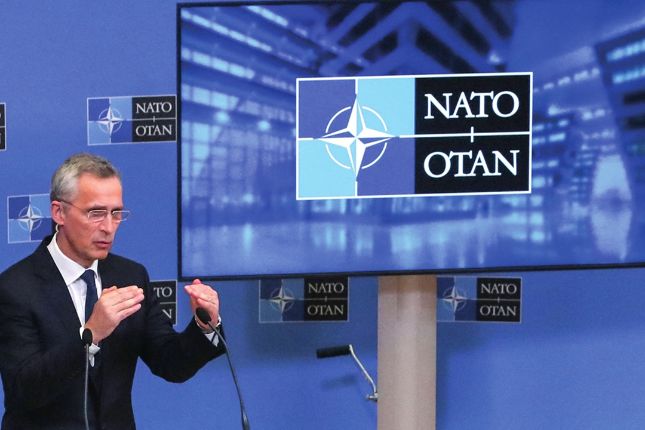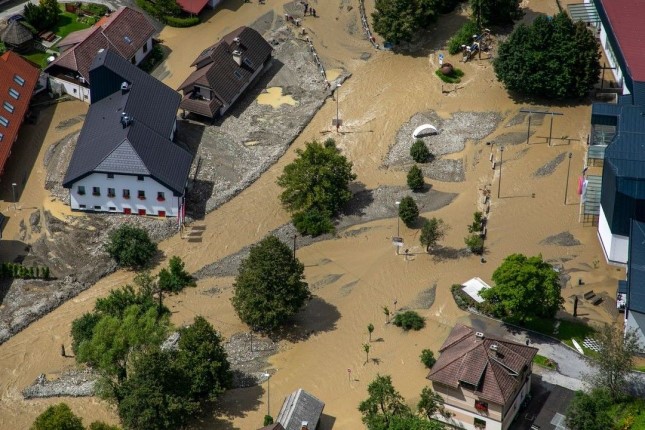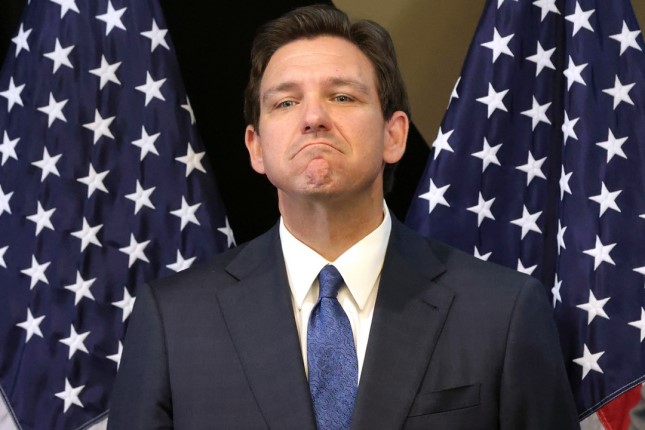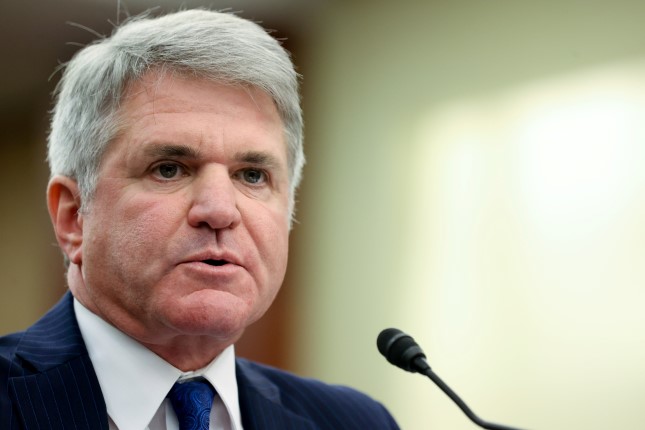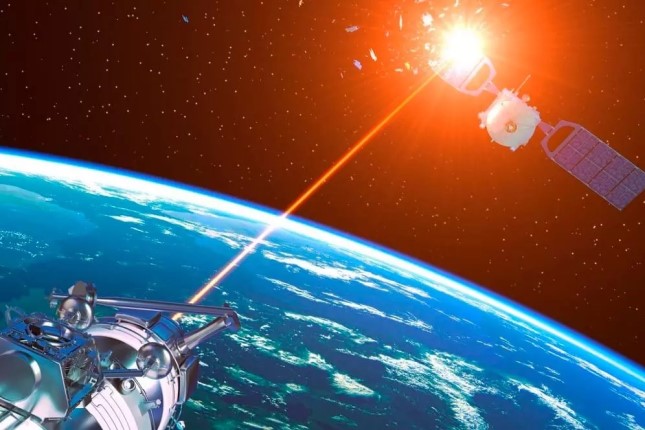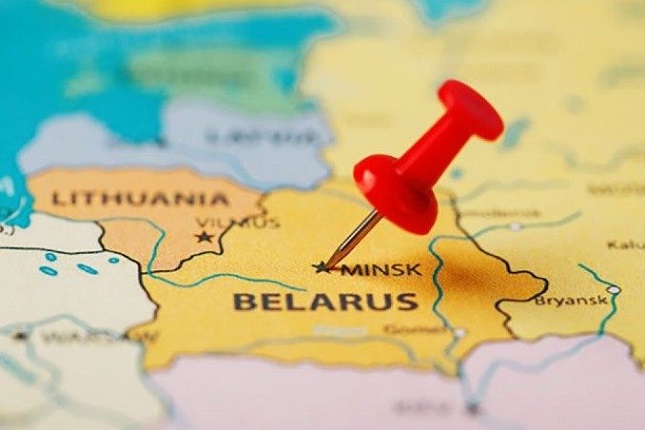Despite the US President Joe Biden claimed that the US-Japan-South Korea summit at the US presidential retreat Camp David "is not about China" afterward, the leaders of the three countries explicitly picked on China under the pretext of "joint efforts to maintain peace and stability" in Taiwan Straits and South China Sea, which once again laid bare anti-China hypocrisy, Chinese observers criticized.
Biden held the summit with South Korean President Yoon Suk-Yeol and Japanese Prime Minister Fumio Kishida on US local time Friday and announced new commitments that they believe herald the new era of cooperation and to turn this first-ever trilateral summit into an annual tradition, media reported.
Apart from the Camp David summit with leaders of South Korea and Japan, Biden will also chalk up a fresh victory in his campaign to boost US influence in the Indo-Pacific by sealing a deal with Vietnam next month aimed at drawing Hanoi closer to Washington at a time of rising tensions with Beijing, Politico reported on Friday.
The US is trying everything it can to incite bloc confrontation in Asia and using its allies and regional countries to serve its goal to contain and compete with China, but this goal is selfish and actually undermines the peace of the region, so it will receive opposition not only from China but also other regional countries like North Korea and Russia, analysts said, noting the US' deal with regional countries like Vietnam will merely arouse temporary interests and won't fundamentally impact the regional countries' traditional ties with China.
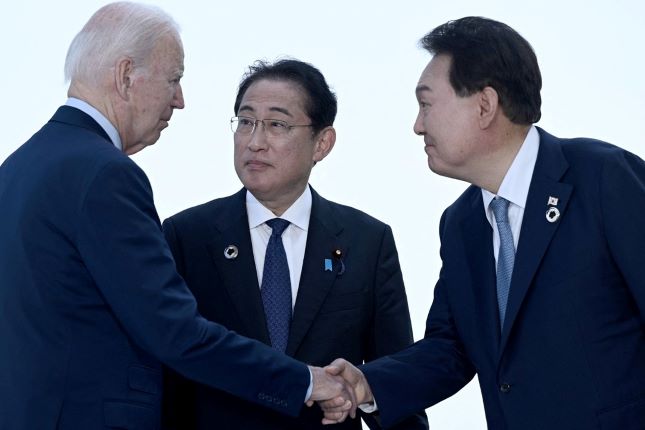
US President Joe Biden(from left to right), Japan's Prime Minister Kishida Fumio and South Korea's President Yoon Suk Yeol greet each other ahead of a trilateral meeting during the G7 Leaders' Summit in Hiroshima on May 21, 2023. Biden will host Fumio and Yoon for a summit at Camp David in Maryland on August 18, the White House said July 28, 2023. Photo: VCG
Camp David summit
Camp David in Maryland, a presidential retreat located some 112 kilometers from the White House, saw the release of "Spirit of Camp David", "Camp David Principles" and "Commitment to Consult" among the US, Japan and South Korea on Friday following the summit.
The three leaders announced deepening military and economic cooperation and made their strongest joint condemnation yet of "dangerous and aggressive behavior" by China in the South China Sea, Reuters reported on Friday.
Without mentioning China, Biden said the leaders reaffirmed a commitment to maintain peace and stability in the Taiwan Straits and address economic coercion, the Voice of America (VOA) reported.
They also made a commitment to "consult during crisis", including regular military exercises and ballistic missile drills, as well as new collaborations on economic security — strengthening semiconductor supply chains, cybersecurity and artificial intelligence, and new regional initiatives to build partner capacity throughout the so-called Indo-Pacific, including in the maritime security domain, VOA reported.
The group also agreed to pilot a supply chain early-warning system to guard against disruptions of certain products, including critical minerals used in electric vehicle batteries, the report noted.
In a briefing to reporters Friday, US national security adviser Jake Sullivan commented on criticism of the trilateral summit as Washington's gambit to create a "mini-NATO" in Asia by saying that "this partnership is not against anyone. It is for something… It is for a vision of the Indo-Pacific that is free, open, secure and prosperous."
However, Chinese analysts lashed out at anti-China hypocrisy and pointed out that although the group has yet to form a collective defense commitment similar to NATO's "an attack on one is an attack on all," the hype of "a threat to any member is a threat to the US, Japan, and South Korea as a whole" has already echoed that mechanism.
The pledge is intended to acknowledge that the three countries share "fundamentally interlinked security environments" and that a threat to one of the nations is "a threat to all," according to a senior Biden official who spoke on condition of anonymity.
"Any provocations or attacks against any one of our three countries will trigger a decision making process of this trilateral framework and our solidarity will become even stronger and harder," South Korean leader Yoon reportedly warned.
It is concerning that the mini-NATO planned around serving the US' strategic competition with China and weaken China's development prospects is being formulated, Chinese observers warned.
To create confrontation
Military expert and TV commentator Song Zhongping warned Saturday that whether the mini-NATO becomes reality would depend on if such trilateral framework is institutionalized and made into law in each country, which is believed to be highly likely.
Although Biden still terms the trilateral ties as "partnership" in the joint statement, his understanding and conception is entirely different from previous administrations and has a strong "alliance color", Li Haidong, a professor at the China Foreign Affairs University, told the Global Times on Saturday.
The leaders of three countries are expanding the currently existed partnership toward the goal of forming the trilateral alliances, with Camp David summit as their latest efforts, Li pointed out. "It is crystal clear that the fundamentals for such partnership or alliances is all about serving US competition with China and weakening China's development prospects."
The US and its two regional allies are in fact exploiting regional affairs to create confrontation and spread anxiety to legitimize their grouping in strategic competition with China, Li noted.
The Asia-Pacific region is a highland of peace and development, and a land of cooperation that must not become an arena for geopolitical games, Chinese Foreign Ministry spokesperson Wang Wenbin said on Friday, commenting on the Camp David summit, and urged all parties to uphold true multilateralism amid a complex international security situation.
Although the summit has been hyped by the US media as show of stronger solidarity of the group, political differences between the countries are hard to overlook, and future domestic political changes could reverse the current solidarity, Chinese analysts noted.
Yoon, for example, facing a declining approval rating at home due to his overwhelming pro-US policies and his olive branch offering to Japan, had been repeatedly denounced by domestic critics as "national disgrace," Li said.
Current policies of the leaders of Japan and South Korea reflect a lack of independence, making their diplomatic approach unbalanced, which will impact these leaders domestically, and especially in South Korea, once the opposition party takes office again, the current ties between Seoul and Tokyo will face big turbulence, experts said.
Analysts said North Korea and Russia will also pay attention to the trilateral move of the US, Japan and South Korea, and the aggressive step of the US-led "mini NATO" could force other regional countries to take more assertive actions to respond, and the US-hyped bloc confrontation could also make Seoul and Tokyo fall into huge geopolitical crisis, if the two US allies blindly follow Washington's order to harm their neighbors in the region.
Vietnam won't be fooled
According to Politico on Friday, Biden "will sign a strategic partnership agreement" with Vietnam during "a state visit to the Southeast Asian country in mid-September," according to "three people with knowledge of the deal's planning" who asked for anonymity.
The agreement will allow for new bilateral collaboration that will boost Vietnam's efforts to develop a high technology sector in areas including semiconductor production and artificial intelligence, media reported.
Li said the development of US-Vietnam ties is deeply related to the rising tension between China and the US, but this kind of cooperation between Washington and Hanoi is driven by temporary and short-term interests, while the Southeast Asian country with the leadership of the Communist Party of Vietnam (CPV) is wise enough to prevent being used by Washington to confront its comrade and neighbor China.
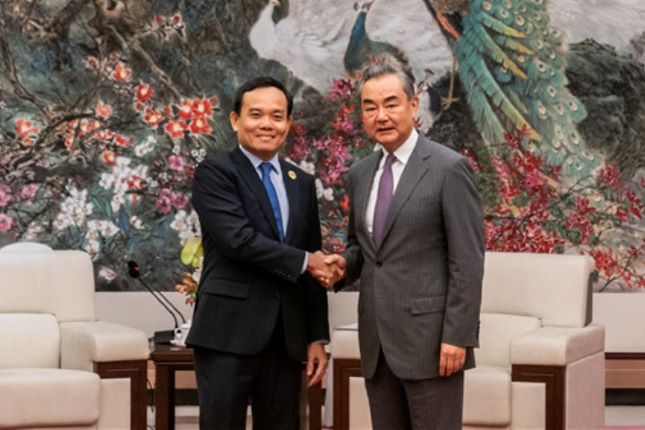
China's top diplomat Wang Yi (right) meets with Vietnam's Deputy Prime Minister Tran Luu Quang on Wednesday. Photo: fmprc.gov.cn
"China and Vietnam will continue to leverage the cooperative mechanisms, coordinate efforts to advance collaboration in various fields, and propel the bilateral relationship towards the goal of building a community with a shared future between the two countries," Wang Yi, director of the Office of the Foreign Affairs Commission of the Communist Party of China (CPC) Central Committee, said on Wednesday during his meeting with Vietnam's Deputy Prime Minister Tran Luu Quang who was in China to attend the seventh China-South Asia Expo.
China and Vietnam should work on making well preparations for the upcoming high-level exchanges, further deepen strategic mutual trust, collaboratively safeguard political stability and institutional security, and jointly uphold the Communist Party's ideals and beliefs as well as the socialist orientation, said Wang Yi, also a member of the Political Bureau of the CPC Central Committee.
Tran said China's significance and distinctiveness to Vietnam are unparalleled; it stands as the sole nation with Vietnam's diplomatic priorities, and the development of relations with China remains a foremost priority in Vietnam's foreign policy, Tran added.
"The US has never given up in instigating color revolution to promote regime change in socialist countries, including Vietnam, while the CPC and the CPV share common interests and ideals to support each other in governing their own countries, so this prevents the US from using Vietnam as a puppet against China. Hanoi will handle its ties with China and the US properly," Li noted.
Main Photo: Chen Xia/GT
Source: The Global Times.
